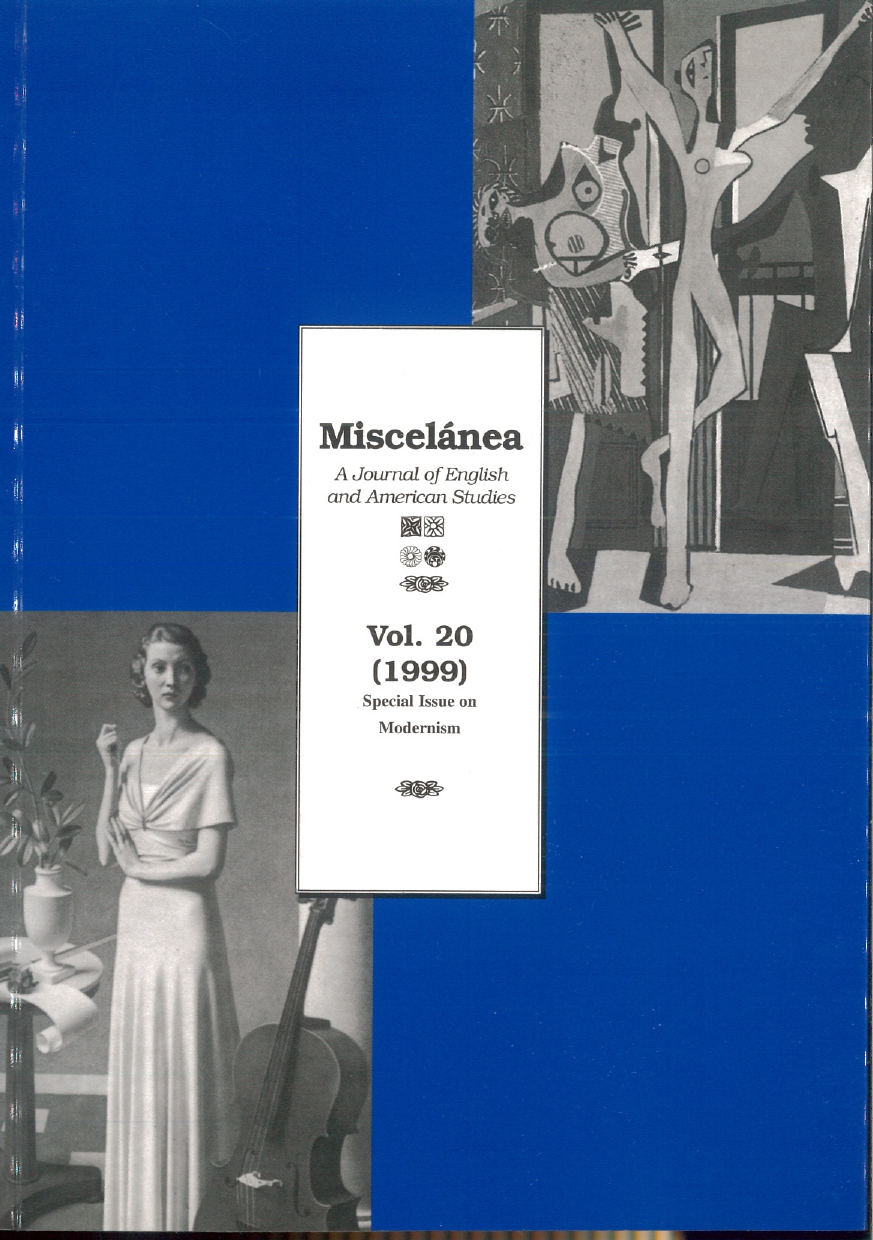The European Radio Broadcasts of T.S. Eliot
DOI:
https://doi.org/10.26754/ojs_misc/mj.199911258Abstract
Although T. S. Eliot is among the most-studied figures in literary history, the 80-90 radio broadcasts he did between 1929-1964 have yet to receive critical attention. It is less striking that Eliot should have been attracted to radio than it is that, after 1941, he increasingly directed his broadcasts to European and Asian audiences. After all, numerous other modernist writers and poets experimented with radio (though few others made Eliot' s sustained commitment to the medium). If Eliot's foreign broadcasts conform to the studied ecumenicity of his other talks before the microphone, in addressing German or Eastern European audience they did nevertheless test ecumenical limits. Today, at the end of the century, the idea of "Europe" has more currency than ever before, but with the end of the Cold War we have to strain to hear anyone insisting on the unity of European "culture". In this sense, Eliot' s broadcasts comprise a uniquely modernist moment: an attempt to use a new technology to recognize a dream in which the rest of the world was rapidly losing interest.
Display downloads
References
BROOKER, Jewel Spears. (ed.). 1999. T. S. Eliot and the Turning World Houndmills: Macmillan.
BRIGGS, Asa. 1961-1995. The History of Broadcasting in the United Kingdom. Vols I-V. London and New York: Oxford U. P. DOI: https://doi.org/10.1093/acprof:oso/9780192129260.001.0001
CARPENTER, Humphrey. 1988. A Serious Character: The Life of Ezra Pound. Boston: Houghton Mifflin.
COYLE, Michael. 1998. ""This rather elusory broadcast technique": T. S. Eliot and the Genre of the Radio Talk". ANQ II. 4 (Fall 1998): 32-42. DOI: https://doi.org/10.1080/08957699809601267
---. 1999a. "Checklist of the Radio Broadcasts of T. S. Eliot". In Brooker, J. s. (ed.).
---. 1999b. "Eliot on the Air: "Culture" and the Challenges of Mass Communication". In Brooker, J. S. (ed.).
DOOB, Leonard. (ed.). 1978. Ezra Pound Speaking: Radio Speeches of World War II. Westport, CT: Greenwood Press.
ELIOT, T. S. 1939. "Last Words". Criterion XVIII. 71 (Jan. 1939): 269-270.
---. 1942a. "In Praise of Kipling's Verse". Harper's 184. 1106 (July 1942): 149-157.
---. 1942b. "T. S. Eliot on Poetry in Wartime". Common Sense XI. 10 (October 1942): 351.
---. 1953. "Literature". In Law, R. (ed.). The Unity of European Culture. London: William Clowes & Sons, Ltd: 19-21.
---. 1957. On Poetry and Poets. London: Faber & Faber.
---. 1968. Christianity and Culture. Two Noted Books Complete in One Volume: The Idea of A Christian Society, and Notes towards the Definition of Culture. New York: Harvest/ Harcourt, Brace and Jovanovich.
GALLUP, Donald. 1969. T. S. Eliot: A Bibliography. Revised and Extended Edition. New York: Harcourt, Brace & World.
HEYMAN, C. David. 1976. Ezra Pound: The Last Rower: A Political Profile. New York: Richard Seaver/ Viking.
PAULU, Burton. 1956. British Broadcasting: Radio and Television in the United Kingdom. Minneapolis: University of Minnesota Press.
PAWLEY, Edward. 1972; BBC Engineering, 1922-72. London: BBC.
SCANELL, Paddy and David CARDIFF. 1991. A Social History of British Broadcasting, Volumne One 1929-1939: Serving the Nation. London: Basil Blackwell.
VIWANATHAN, Gauri. 1989. Masks of Conquest: Literary Study and British Rule in India. New York: Columbia U.P.
Downloads
Published
Issue
Section
License

This work is licensed under a Creative Commons Attribution-NonCommercial 4.0 International License.


